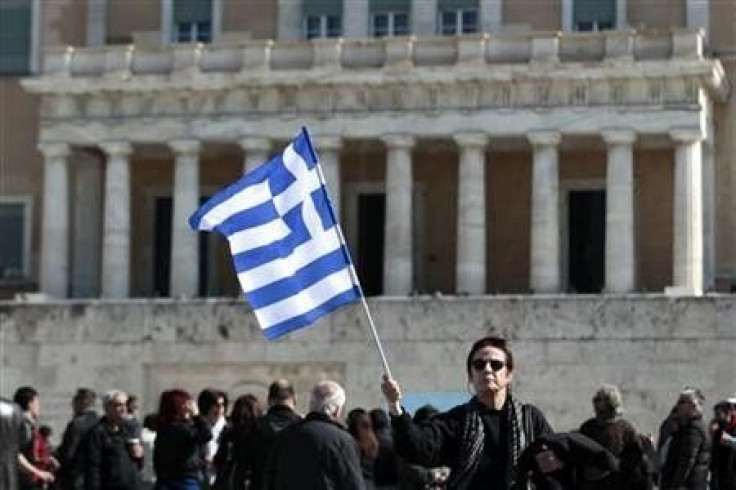Euro Plunges On Expectations Greece Will Leave Euro Zone

The euro (EUR) fell to its lowest levels since January following the news Greece would have to hold a new round of elections, making the prospect of the dissolution of the euro zone economic union significantly more compelling.
The major factor driving down the value of the euro is the Greek crisis with the political paralysis. There are risks that Greece could enter a situation where it has to leave the euro, said Thanos Vamvakidis, head of European G10 foreign exchange strategy for Marill Lynch, on Wednesday.
Greece has formed an emergency government led by senior Greek supreme court judge Panagiotis Pikrammenos. The nation will hold new elections on June 17.
Many are currently predicting that there will be no resolution to the political problems in Greece before the June elections, and the current political front-runner is a left-wing party that plans to nationalize the nation's banks, according to Vamvakidis.
Markets have a diminishing appetite for risk, which is pressuring the euro. The risk of Greece leaving the euro region has got bigger, and there's growing concern about a bank run. We're seeing dollar strength across the board, said Adam Cole, global head of foreign-exchange strategy at Royal Bank of Canada's Capital Markets unit in London, according to Bloomberg News.
The euro plunged to a low of $1.2730 on Tuesday, a level where it is has continued to hover. Wednesday morning the euro was trading at $1.2743. The euro's low point in January was $1.2624. As the euro has plunged, the dollar (USD) has appeared more appealing to investors in light of recent moderately positive economic reports.
Some analysts see the drop in value of the euro as more of correction rather than an indication of malaise.
The Greek problems are obviously the main driver here, but even looking at economic fundamentals, the euro around $1.30 just seemed unnaturally expensive. I see this move as a return into more neutral territory, said Koji Fukaya, director of global foreign exchange research for Credit Suisse Securities in Tokyo, according to Reuters.
Many Greeks, though, see their money in danger, and there has been a rapid outflow of cash from Greek banks. Greeks had withdrawn roughly €800 million ($1.02 billion) over the course of three days Tuesday afternoon, with some taking out cash, others sending their savings to euro zone banks outside of Greece and some converting their cash to German Bunds, according to Reuters. Greece's economic and banking leaders are not calling it a rush, though.
However, the worries of ordinary Greeks who are withdrawing their savings may indicate growing weakness in the nation's banking industry. Greeks withdrawing savings from banks is a chief concern clearly for the situation in Greece, Vamvakidis said. It is the sense of the public about the banking sector because the banking sector has not yet been recapitalized.
The euro took its dive as the black sails of the dissolution of the economic union became apparent on the horizon, and analysts have begun predicting that the collapse is drawing closer as the Greek people flail around to produce a government.
The status quo is no longer an option for Europe over the three- to five-year horizon, Mohamed A. El-Erian, Pimco CEO, wrote in a recent report.
For now we see risk from the downside because the situation is very difficult and will not stabilize before the elections ... and (bank) withdrawals are accelerating, Vamvakidis said.
El-Erian envisions a Europe where the 17-nation euro zone has devolved into a smaller union centered on France, Germany, Italy and Spain. He says that a big derailment of the current economic union is a risk.
© Copyright IBTimes 2024. All rights reserved.











